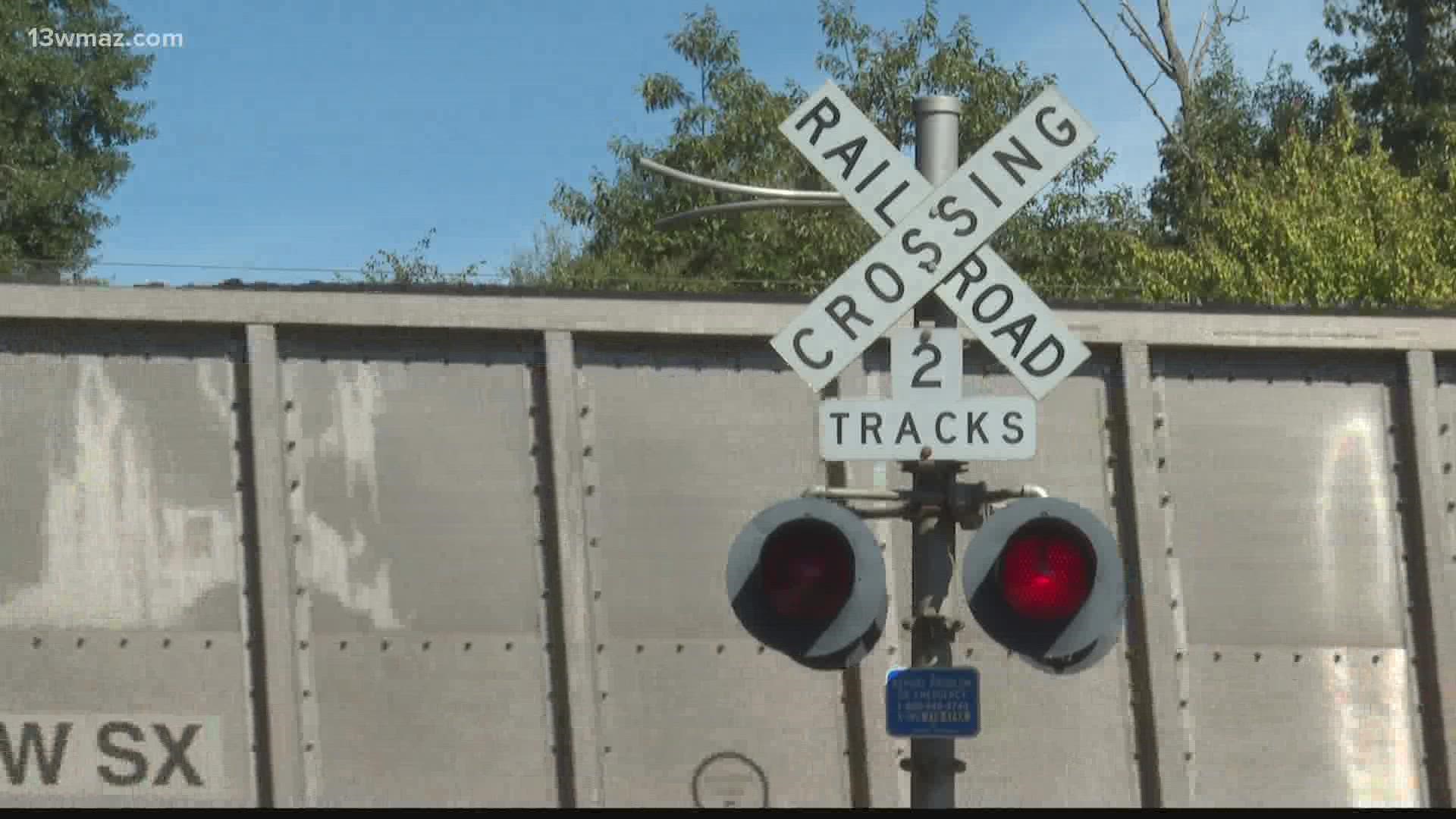JULIETTE, Ga. — Last week, 13WMAZ told you how Norfolk Southern trains often block a crossing in Monroe County weekly, if not daily, for up to six hours.
The trains have also blocked first responders from getting to scenes and giving lifesaving medical care.
Norfolk Southern says the train blocks the Juliette crossing for a number of reasons, like mechanical issues, staffing shortages, and even for crews to take "mandated rest times" of up to four hours.
Some Georgia lawmakers are now trying to hold the railroad accountable.
"You have to take a detour. You're looking at anywhere from a 25-minute to 35-minute detour time. When minutes matters, that's devastating. That could potentially mean the difference of lives lost," said Daniel Fullmore.
"There's commerce versus health and safety, but there's also ethics. Don't these people have hearts? I mean, what's the right thing to do here?" said Kathy Dean.
People like Fullmore and Dean who live on the other side of the train tracks in Juliette have to think about this daily: What would happen if they're trapped in an emergency when a train blocks this crossing?
With problems, there should be solutions. I don't know if it's extending the pull out of the tracks or breaking apart the train after a certain amount of time that track is closed,"
In our past investigation, we found that other states like Iowa, Illinois, Washington State, among others, ban trains from blocking crossings for more than 10 minutes, but why doesn't Georgia, and what's being done to fix the problem?
13WMAZ's Ashlyn Webb brought those questions to federal and state legislators.
"I think it is something that should be addressed and we need to ask the question and start talking to leadership. This is a real issue, a real problem," said State Representative Dale Washburn.
Washburn, whose district includes Juliette, watched our story Thursday. He says since, he's asked to sit down with Norfolk Southern to come up with a solution.
"Obviously, for a crossing to be blocked for six hours is unacceptable," Washburn said.
When asked if he would introduce a bill in the house this session on the matter, Washburn said, "Well, we have to know what the solution can be to say that you'd introduce a bill. Not trying to be evasive about that, but I think we have to find out if there is a legislative solution."
He says legislators will need to look at what's being done in other states and how effective those laws are.
Not only is there no state law, there's no federal law, which folks in Juliette say Norfolk Southern representatives often remind them of.
"They say there's no law that regulates them parking on the tracks and they're allowed to park on the tracks if they want to and nobody can stop them," Dean said.
Since 2019, the Federal Railroad Administration has tracked blocked crossings through a voluntary reporting system.
In August, Senator Jon Ossoff asked the Federal Railroad Administration for more information about why trains block traffic for hours. In a nine-page inquiry, he highlighted problem areas across the state, including the dangers of this Juliette crossing specifically.
When asked what he would say to Norfolk Southern, who's responsible for blocking this crossing for sometimes six hours, Ossoff replied, "We've got to solve this problem. We've got to address the logistical and operational challenges that are keeping folks in their cars or keeping first responders waiting for hours at these railroad crossings, and I'll work with them to achieve that. I'll work with the Federal Railroad Administration to achieve that, but there's got to be accountability. There's got to be change."
We reached out to Norfolk Southern about what's being done to fix the problem. They offered to respond to questions by email but declined to comment on camera.
Senator Ossoff couldn't provide a timeline on when he or the Federal Railroad Administration will present findings on the study.

